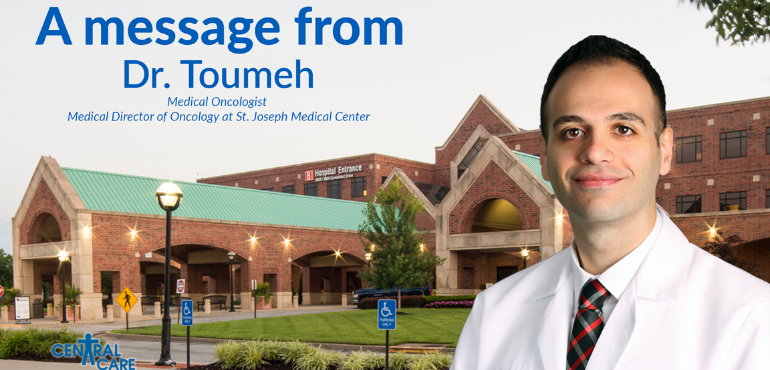Early Detection Saves Lives - The Importance of Mammograms
If you ask many of us what our favorite months of the year are, there is a good chance October is making the list. We enjoy the change of colors, fall fests, Halloween, and it is my wife’s birthday month! It is also the time of the year that we raise awareness for breast cancer, which continues to be the most common cancer in American women, except for skin cancers. Across the nation, many activities and fundraisers are held throughout the month with hope that one big message gets delivered: breast cancer is common, but we can screen for it, cure it in early stages, and even prevent it! Unfortunately, throughout my career, I have seen cases that could have been diagnosed earlier, but they were not, and the cancer was just too advanced with no curative treatment available. Those cases always remind me that yes, it is in part on us to educate our community about ways to prevent breast cancer and screen for it.
Mammogram continues to be the most common modality used for screening, and a very effective one! Decades long studies confirmed that it decreases mortality from breast cancer. Currently, the American Cancer Society recommends that average risk women between the age of 40 and 44 have the option to start screening with a mammogram every year, women 45 to 54 should get mammograms every year while women 55 and older can switch to a mammogram every other year, or they can choose to continue yearly mammograms. Screening should continue as long as a woman is in good health and is expected to live at least 10 more years. We have to keep in mind that these recommendations do not apply to women at higher risk for breast cancer, such in those with strong family history or carriers of genetic mutations that increase their risk.
The field of cancer genetics has evolved tremendously in the last 10 years. We now have much more knowledge about many genes that may increase breast cancer risk. Those can be screened for in eligible patients. Treatments for different stages of breast cancer have also come a long way, with many advances in surgical approaches, radiation therapy, chemotherapy, and targeted treatments. If I may ask you to do one thing today, it is to please make sure that the next eligible patient you see in your clinic is up to date on her mammogram.
Anis Toumeh, M.D.
Medical Oncologist, Central Care Cancer Center.
Medical Director of Oncology, St. Joseph Medical Center.
1004 Carondelet Drive. Suite 410, Kansas City, MO 64114
P: 816-381-8051 | F: 833-734-1556
Watch the video below for more information from Dr. Toumeh.


